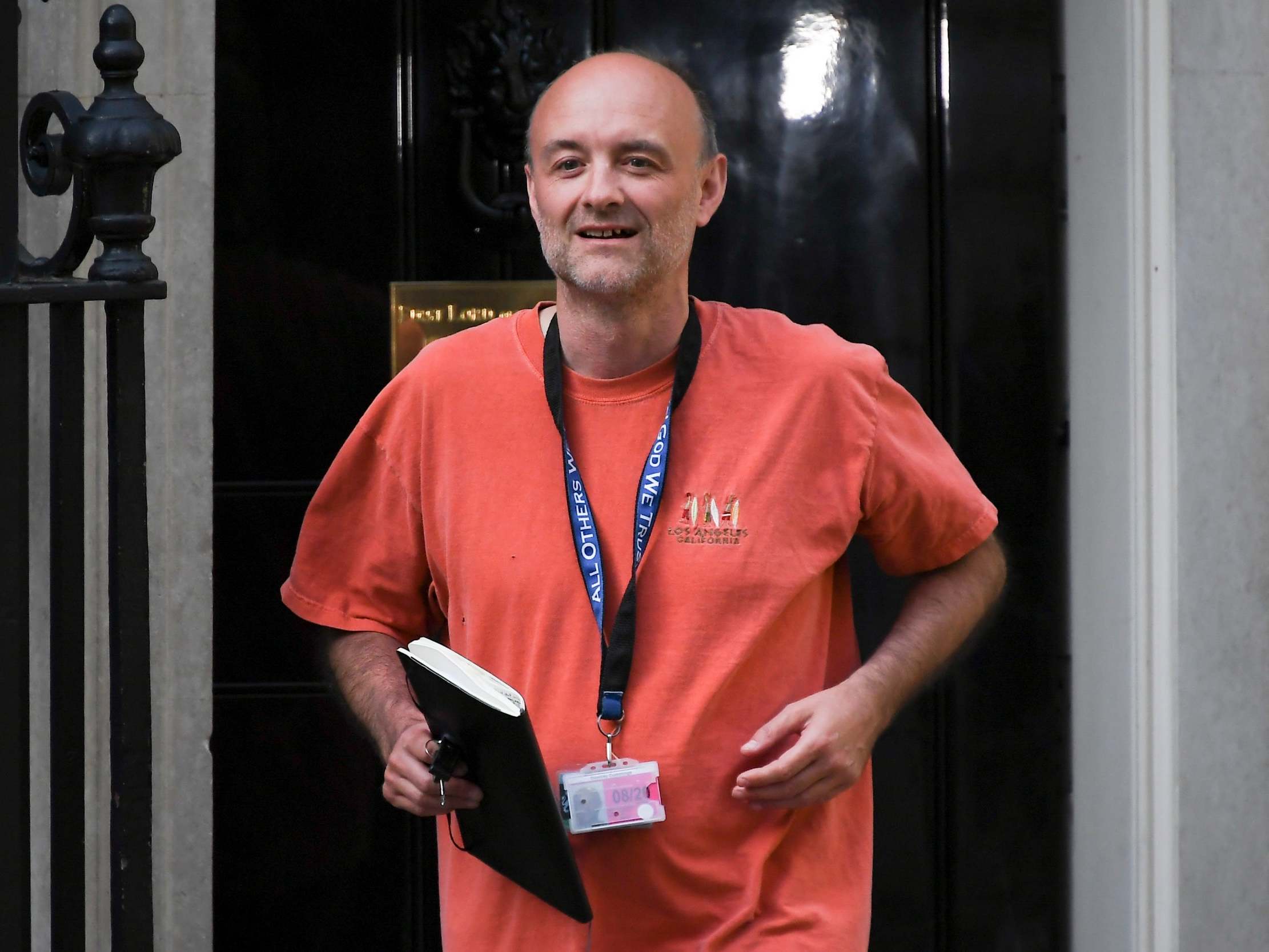Coronavirus laws changed to mean relatives are not 'childcare' after Dominic Cummings scandal
Boris Johnson's chief adviser said he moved to his parents' farm so relatives could care for his son while he and his wife were ill
Your support helps us to tell the story
From reproductive rights to climate change to Big Tech, The Independent is on the ground when the story is developing. Whether it's investigating the financials of Elon Musk's pro-Trump PAC or producing our latest documentary, 'The A Word', which shines a light on the American women fighting for reproductive rights, we know how important it is to parse out the facts from the messaging.
At such a critical moment in US history, we need reporters on the ground. Your donation allows us to keep sending journalists to speak to both sides of the story.
The Independent is trusted by Americans across the entire political spectrum. And unlike many other quality news outlets, we choose not to lock Americans out of our reporting and analysis with paywalls. We believe quality journalism should be available to everyone, paid for by those who can afford it.
Your support makes all the difference.Childcare has been defined to exclude relatives caring for children in new coronavirus laws following the Dominic Cummings scandal.
The prime minister’s chief adviser drove from London to County Durham with his wife and son on 27 March, when lockdown restrictions made it illegal to be outside “without reasonable excuse”.
After the journey was revealed by the press, Mr Cummings said they had stayed at a cottage on his parents' farm and that relatives had offered to look after his four-year-old son after the couple developed coronavirus symptoms.
At the time, the Health Protection Regulations made it legal to leave home in order “to access critical public services, including childcare” and police found Mr Cummings had not broken the law with the initial journey.
Childcare was not defined in the legislation at the time, but the meaning of the word has been narrowed under changes that came into force on Monday.
A paragraph has been added to part of the law governing its “application and interpretation”, reading: “Childcare has the same meaning as in section 18 of the Childcare Act 2006.”
That law states that it cannot include care provided by relatives, adding: “Relative, in relation to a child, means a grandparent, aunt, uncle, brother or sister, whether of the full blood or half blood or by marriage or civil partnership.”
The change means that childcare would no longer be a legal exemption for Mr Cummings’ journey to Durham, but the new law cannot be applied retrospectively.
“None of our usual childcare options were available,” he told a press conference. “If we were both unable to look after our child, then my sister or nieces could look after him.”
Government ministers, including the attorney general, defended Mr Cummings’ actions, and Boris Johnson said coronavirus rules “made it absolutely clear that if you have particular childcare issues that is a factor that has to be taken into account”.
Police investigated Mr Cummings for potential breaches of the Health Protection Regulations, which allow officers to fine or arrest people for violating the lockdown.
Durham Constabulary said that he had not broken the law as it stood at the time for relocating to the family farm, but that Mr Cummings might have with a later trip to Barnard Castle.

The force emphasised that it only had the power to enforce the law, rather than government and NHS guidelines which were stricter at the time.
Police said there was “no intention to take retrospective action in respect of the Barnard Castle incident since this would amount to treating Mr Cummings differently from other members of the public”.
Durham Constabulary has previously fined at least two people who travelled to the county from London.
After the findings were announced on Thursday, a Downing Street spokesperson said: “The prime minister has said he believes Mr Cummings behaved reasonably and legally given all the circumstances, and he regards this issue as closed.”
The definition of childcare is one of numerous changes made to the Health Protection Regulations as the government eased lockdown restrictions in England on Monday.
They previously banned people leaving home without “reasonable excuse”, but the provision has been replaced by stringent curbs on where people can sleep and gather together.
While the powers are in force, “no person may participate in a gathering which takes place in a public or private place outdoors, and consists of more than six persons, or indoors, and consists of two or more persons”.
A separate provision makes it illegal to stay overnight outside your home “without reasonable excuse”, which can include moving home, work, attending funerals, providing care and escaping harm.
There is no exemption for couples who do not live together, meaning that the law has effectively banned them from having sex indoors or staying at each other’s homes.
Police can arrest or fine people for breaking the law, with the default penalty standing at £100 in England, but do not have the power to enter properties to check for violations.

Join our commenting forum
Join thought-provoking conversations, follow other Independent readers and see their replies
Comments